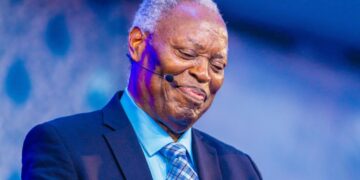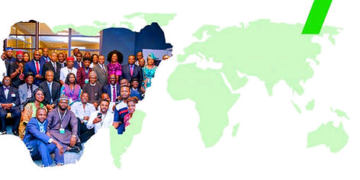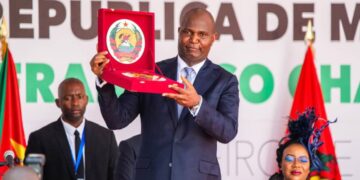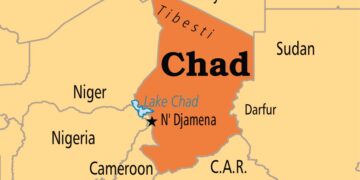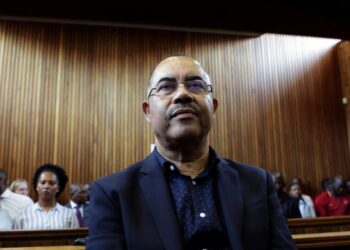Since the passing into law of the Companies and Allied Matters Act 2020, (CAMA 2020), a lot has been said and written about it. While some people are full of praise for the new law, which they see as innovative and a step in the right direction that will boast businesses, others particularly, private associations, religious associations, Charities, and Non-Governmental Organizations (NGOs) see the law as repressive, illegal, unlawful and unconstitutional on the ground that section 839(1)(a)(b)(c)(2)(3) of CAMA 2020, which empowers the Corporate Affairs Commission (CAC) to suspend the trustees of an association and appoint interim managers to manage the affairs of the association is a gross violation of their fundamental rights to fair hearing, freedom of thought, conscience and religion and their right to peaceful Assembly and Association as enshrined and guaranteed by the 1999 Constitution of Nigeria as amended (hereinafter referred to as the Nigerian Constitution).
I totally support the regulation of all companies, private associations, religious associations, Charities and NGOs in Nigeria by the Nigerian Government as long as the regulations are fair, equitable sustainable and justifiable in a democratic society, which is why I have via a letter dated 21/8/2020 written to CAC of my intention to sue her in Court, challenging the provisions of section 839(1)(a)(b)(c)(2)(3) of the CAMA 2020 as being inconsistent with the provisions of sections 1 (1)(3), 36, 38 and 40 of the 1999 Constitution of Nigeria.
In addition to the above, it is imperative and instructive that I bring to the fore a serious lacuna in the Nigeria corpus juris and that is the brutal fact that there are no Charities and NGOs in Nigeria. In other words all Companies registered under Part C now Part F of CAMA at CAC are nothing but mere associations and do not have the status of Charities or NGOs whereas there are no laws backing them to so act. In support of my assertion, I refer to the unreported novel case of the Board of Incorporated Trustees of Malcolm Omirhobo Foundation V. The National Judicial Council of Nigeria & 6 others in suit No: FHC/ABJ/CS/420/2019. The facts of the case are that Justice Walter Onnoghen the Chief Justice of Nigeria (CJN) was standing trial at the Code of Conduct Tribunal (CCT) over alleged non-declaration of assets in contravention of the Code of Conduct. While the case was pending, via an interim order, the said sitting CJN was unilaterally suspended and removed from office by the President of Nigeria without the input of the National Judicial Council (NJC) and the Senate.
In his place Justice Ibrahim Tanko Mohammed was sworn in as the Acting Chief Justice of Nigeria and towards the expiration of his tenure as the acting CJN, the NJC, and the Federal Judicial Service Commission recommended him to the President to be appointed as the substantive CJN. Wherefore the Plaintiff in the capacity of an NGO incorporated by CAC in line with her objects instituted a public interest case via an originating summons praying the court to interpret the provisions of Sections 1 (1) (2), 231(4), 292 (1)(a)(i)(b) and Sections 153(1)(i), 158(1), paragraph 21 (a)(b) of part 1 of the Third Schedule of the 1999 Constitution of Nigeria vis a vis the suspension and removal of the CJN, his replacement and the misconduct of the acting CJN, who was then being recommended for the office of the substantive CJN.
The Plaintiff asked the court to determine inter alia: 1. Whether the office of the CJN was vacant as at 25/1/2019 when the President appointed and swore in the Acting CJN? 2. Whether the constitution of Nigeria contemplates suspension or removal from office by an ex-parte order of the court as one of the grounds for which the office of the CJN can become vacant? 3. Whether it is lawful, legal, constitutional, and democratic for the President and the Attorney General of Nigeria to declare the office of the CJN vacant and subsequently appoint and swear in an Acting CJN without recourse and/or the inputs of the NJC and the Senate? 4. Whether Tanko is a proper and fit person to be recommended and appointed to the office of the CJN having violated the Constitution of Nigeria and misconduct himself by accepting the appointment of Acting CJN when the office of the CJN is not vacant?
The Plaintiff then prayed the court inter alia for the following reliefs: 1. A declaration of the court that the removal of the CJN from office and his replacement is unlawful, illegal, unconstitutional, and undemocratic. 2. A declaration of the court that Justice Tanko having conducted himself in a manner that cast doubt of confidence in the integrity and impartiality of the Judiciary and has made himself as a tool used in the violation of the Constitution of Nigeria, is not a proper and fit person to be recommended and appointed as the substantive CJN 3. An order of court restraining the President and the Senate from appointing and confirming Justice Tanko as the substantive CJN 4. An order of the court, compelling the NJC and the FJSC to withdraw their recommendations of Justice Tanko to the President for appointment as the next CJN and for them to recommend for appointment by the President and the confirmation of the Senate the most qualified Justice of the Supreme Court of Nigeria for the office of the CJN.
Justice I. E. Ekwo of the Federal High Court, Abuja held that the Plaintiff misconceived the provisions of S.590 (1) of CAMA relied upon, in arguing that by virtue of having been registered as a corporate person, it is clothed with the status of an NGO. The court held that Nigeria does not yet have a statutory framework for the registration or operation of NGOs. In other words, there is no legislation that deals with the registration and operation of NGOs in Nigeria and hopes that the National Assembly will take serious note of this vacuum by taking a cue from other Commonwealth Countries like Belize (Non-Governmental Organizations Act, Chapter 315 of Belize), Uganda (The Non-Governmental Organisation Act, 2016, Uganda) and Zimbabwe (Non-Governmental Organizations Act, Zimbabwe). His Lordship stated that these countries apart from having enactments that are similar to Part C of the CAMA do have separate enactments for NGOs. His Lordship went on to state that in those climes with the Non-Governmental Organizations Act, these organizations are active in humanitarian, educational, health care, public policy, social, human rights, environmental, and objectives that encourage political education or participation through the provision of information and other areas by which they aim to effect changes according to their objectives. Where citizens found such organizations, they are referred to as “civil society organization”.
The court held that it is therefore unable to see how Part C of the CAMA makes provisions for the registration of NGOs as claimed by the Plaintiff. The court went back a little in history, by tracing the origin of Part C of CAMA to the land (Perpetual Succession) Ordinance, 1924 of Nigeria, which became part of the 1929 edition of the Laws of the Federation through to the 1958 edition of the laws of the Federation when the Laws have complied. It became therein the Land (Perpetual Succession) Act. The provisions were similar to those of Charitable Trustees Incorporation Act, 1872 of the United Kingdom save for some slight modifications. In the promulgation of the Companies and Allied Matters Decree 1990 Laws of the Federation, the entire provisions of the Land (Perpetual Succession) Ordinance, 1924 as captured in the 1958 Laws of the Federation of Nigeria as Cap. 98 thereof were lifted and pasted in the Companies and Allied Matters Decree as part C thereof and S.694 of the said Decree, which is now S.611 of the CAMA 2010. The law repealed the Land (Perpetual Succession) Act of 1958. The essence of registration under the Land (Perpetual Succession) Act was stated in The Registered Trustees of the Planned Parenthood Federation of Nigeria and Another v. Shoghola (2004) 11 NWLR (Pt. 883) 1 at 19 as follows“… the incorporation of an association of persons or body as the 1st appellant under the Land (Perpetual Succession) Act by vesting all lands or interests therein held by the association or body in trust for the association or the trustees in section 2(3) is only to facilitate the acquisition and transfer of land on behalf of the association and it does not vest on the trustees any greater power than they might have had without it…”
In fact the Supreme Court in Alhaji Akindipe and others v. Commissioner of Police, Lagos State (2000) 2 SCNOR 9895 at 905 stated that: “It is true that the Land (Perpetual Succession) Act, Cap. 98 (1958) has been repealed by the Companies and Allied Matters Act, 1990. Its provisions were substantially re-enacted in Part C of the Companies and Allied Matters Act, 1990.”
The essence of registration of associations under Part C of the CAMA has not changed simply because S. 694 thereof repealed the Land (Perpetual Succession) Act. Therefore the only associations permitted to be registered under the CAMA are those stated in S. 590 (1) thereof which provides that: “where one or more trustees are appointed by any community of persons bound together by customs, religion, kinship or nationality or by anybody or association of persons established for any religious, educational, literary, scientific, social, development, cultural, sporting or charitable purpose, he or they may if so authorized by the community, body or association (in this Act referred “the association”) apply to the Commission in the manner hereafter provided for registration under this Act as a corporate body.”
The court held that is trite that a court of law should stop where the statute stops in the exercise of its interpretative jurisdiction and going by the provision of S.590 (1) above, the body to be registered under the CAMA is called an association and not NGO as posited by the Plaintiff and those who aim to seek registration under S.590 (1) are specifically identified as any community of persons bound together by customs, religion, kinship or nationality or by anybody or association of persons established for any religious, educational, literary, scientific, social, development, cultural, sporting or charitable purpose, he or they may if so authorized by the community, body or association’. These bodies by all intent or purposes of the provision are non-contentious, non-confrontational, non-combative bodies and non-litigation associations for their objects are limited to religious, educational, literary, scientific, social, development, cultural, sporting, or charitable purpose. Anybody or association registered under Part C of CAMA that engages in any activity other than the ones mentioned in S. 590 (I) thereof is acting ultra vires because once registered, an association is bound by the content of the constitution by which it was registered pursuant to S. 593 of the CAMA.
The Plaintiff tendered MOF2, which is its aims and objects to wit: a. To establish and sustain advocacy for the promotion of sanity, social justice, and love of the people. b. The entrenchment, monitoring, advancement, and promotion of good governance. c. Charity programs to help the poor and needy. d. Protection of the weak, poor, and vulnerable ones in society. e. Providing legal aids for the indigents. f. The rehabilitation of ex-convict into the society and pursuit of prison uniforms. g. Emancipation of people from mental slavery. h. The advancement and entrenchment of gender equality.
The court held that the Plaintiff is bound by its aims and objects stated above which does not give it the authority to engage itself in what it calls public interest litigation to the extent that it has the authority to initiate this type of suit. His Lordship stated that he was sure that if the Plaintiff had indicated to the CAC that the real object in its mind is to engage in public interest litigation of the nature of this suit, the CAC would have refused to register it under Part C of the CAMA and that if the Plaintiff is now telling this Court that its locus standi to engage in public interest litigation is by virtue of the eight (8) objects in Exh. MOF2, then registration was camouflage and a fraud and ought to be revoked. As stated before by his Lordship, a body registered under Part C of the CAMA is bound strictly by its objectives, and anything done or action is taken outside the objects in its constitution is acting ultra vires. Where an act is an ultra vires the constitution, such an act is null and void.
His Lordship found that the Plaintiff is not authorised by the objects upon which it obtained registration (that is, Exh. MOF2) from the CAC to embark on litigation of this nature and where the objects of a registered body do not authorise an action, such body has no locus standi to embark on that action.
His Lordship, therefore, held that by the objects in the constitution of the Plaintiff, it cannot initiate this action. In other words, the Plaintiff lacks requisite locus standi to bring the action against the defendants and consequently struck out the Plaintiff’s action for lack of locus standi.
With the above judgment, I make bold to say sincerely that there are no NGOs and Charities in Nigeria, and with all sense of humility, I state that it is either borne out of ignorance or pretension that CAC and the Nigerian Government are trying to regulate what does not exist. I humbly submit further that CAMA 2020, as it relates to NGOs and Charities tantamount to putting the cart before the horse, and on that note, I am calling out the Government and all stakeholders to go to the drawing board with all hands on deck to shape the form NGOs and Charities in Nigeria will take and also to ensure that laws are made with which we can have a solid legal framework and /or regime upon which Charities and NGOs in Nigeria can operate and their activities regulated.
To avoid the kind of unnecessary outcry that followed the passing into law of CAMA 2020, I advise that Nigerians must do away with their apathy this time and endeavour to participate in the whole exercise of making the laws backing the establishment of NGOs and Charities in Nigeria. On the part of the Government, I enjoin her to ensure that the exercise is inclusive, transparent, and subject to accountability.








